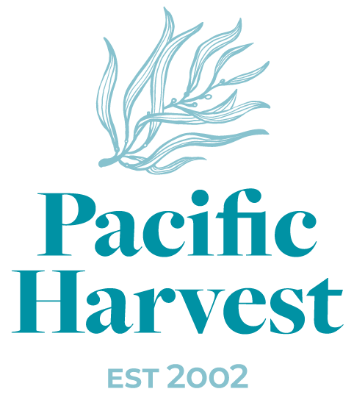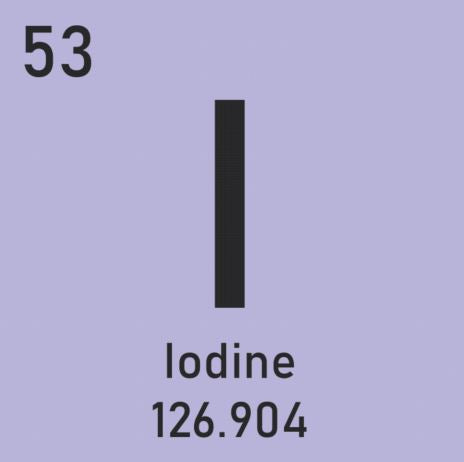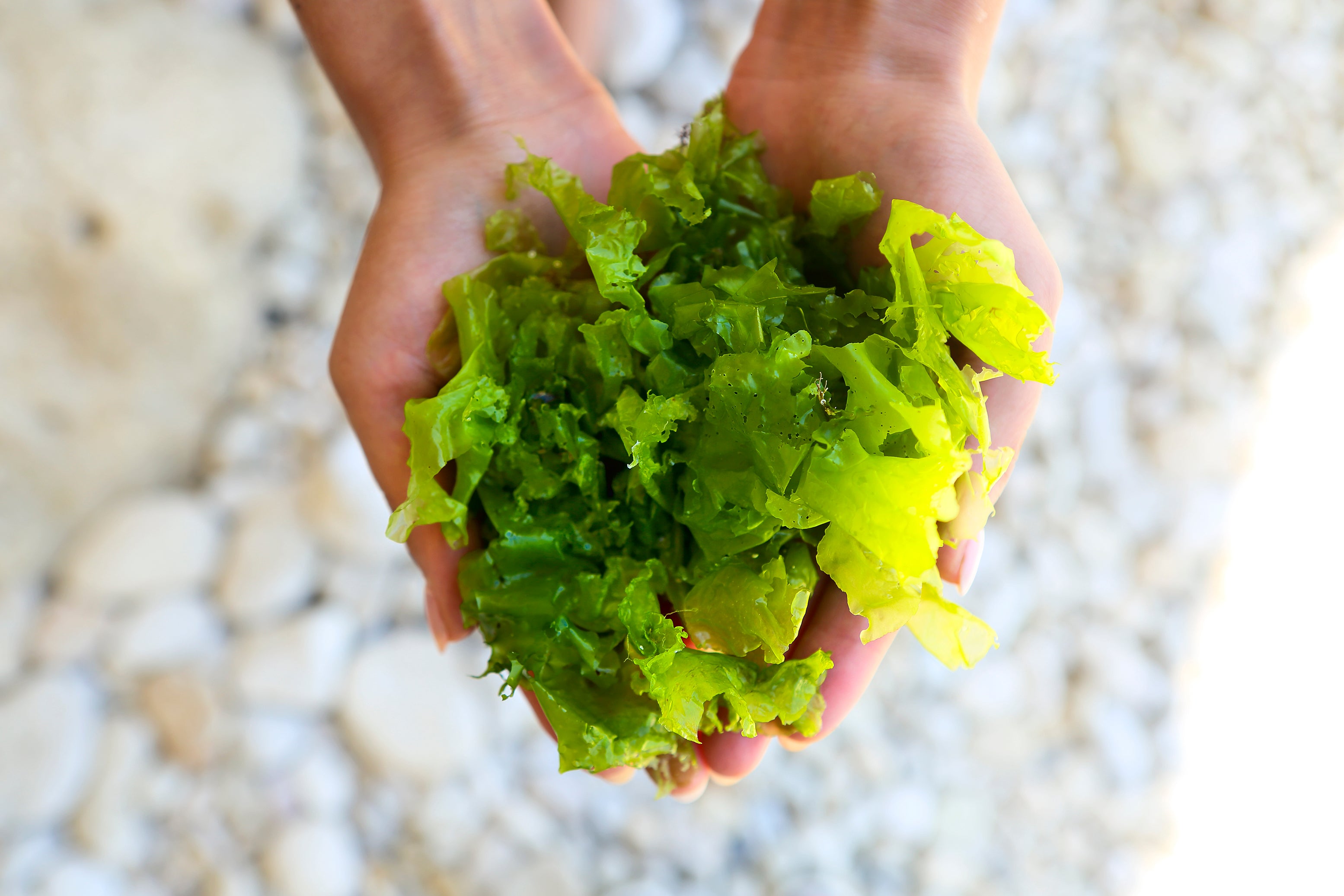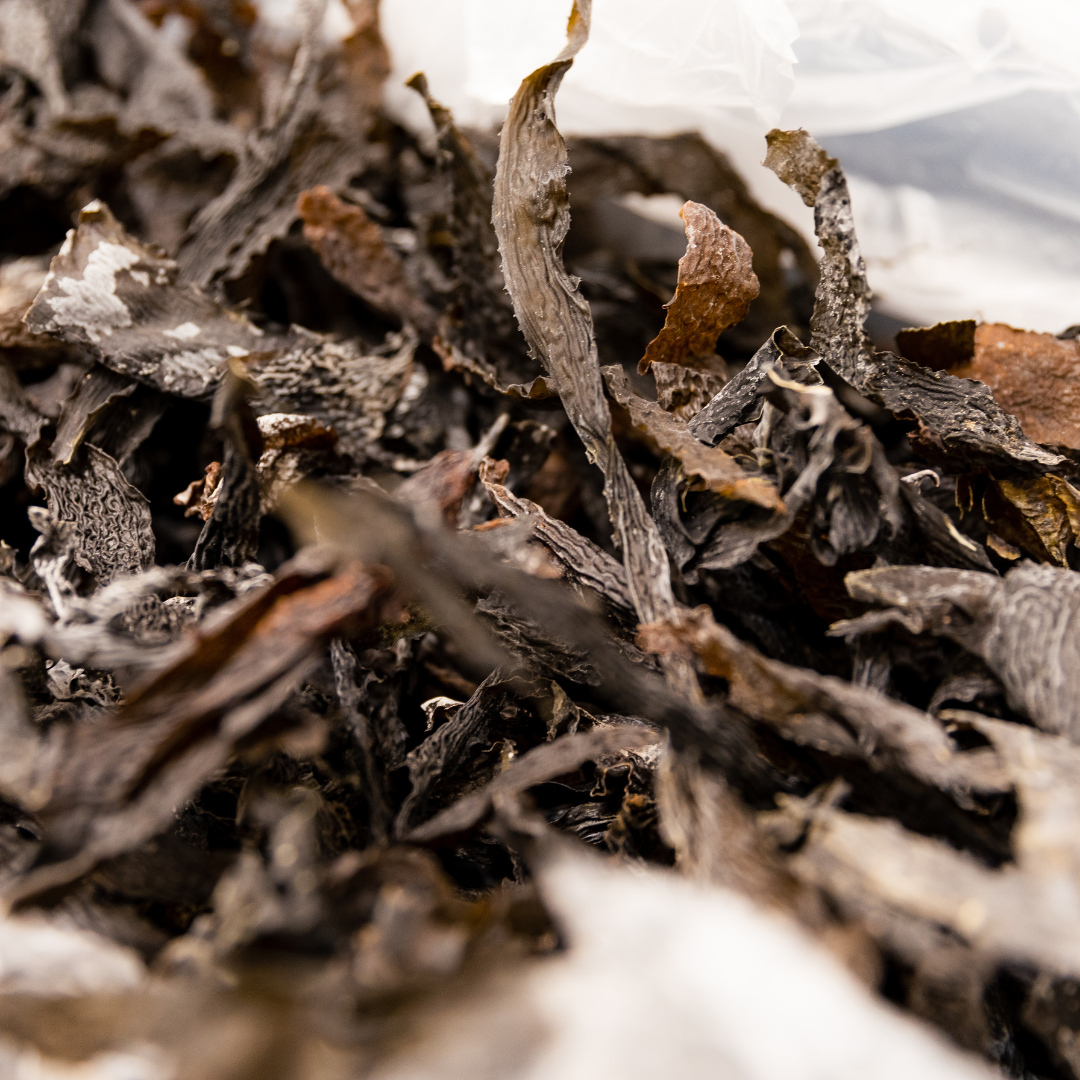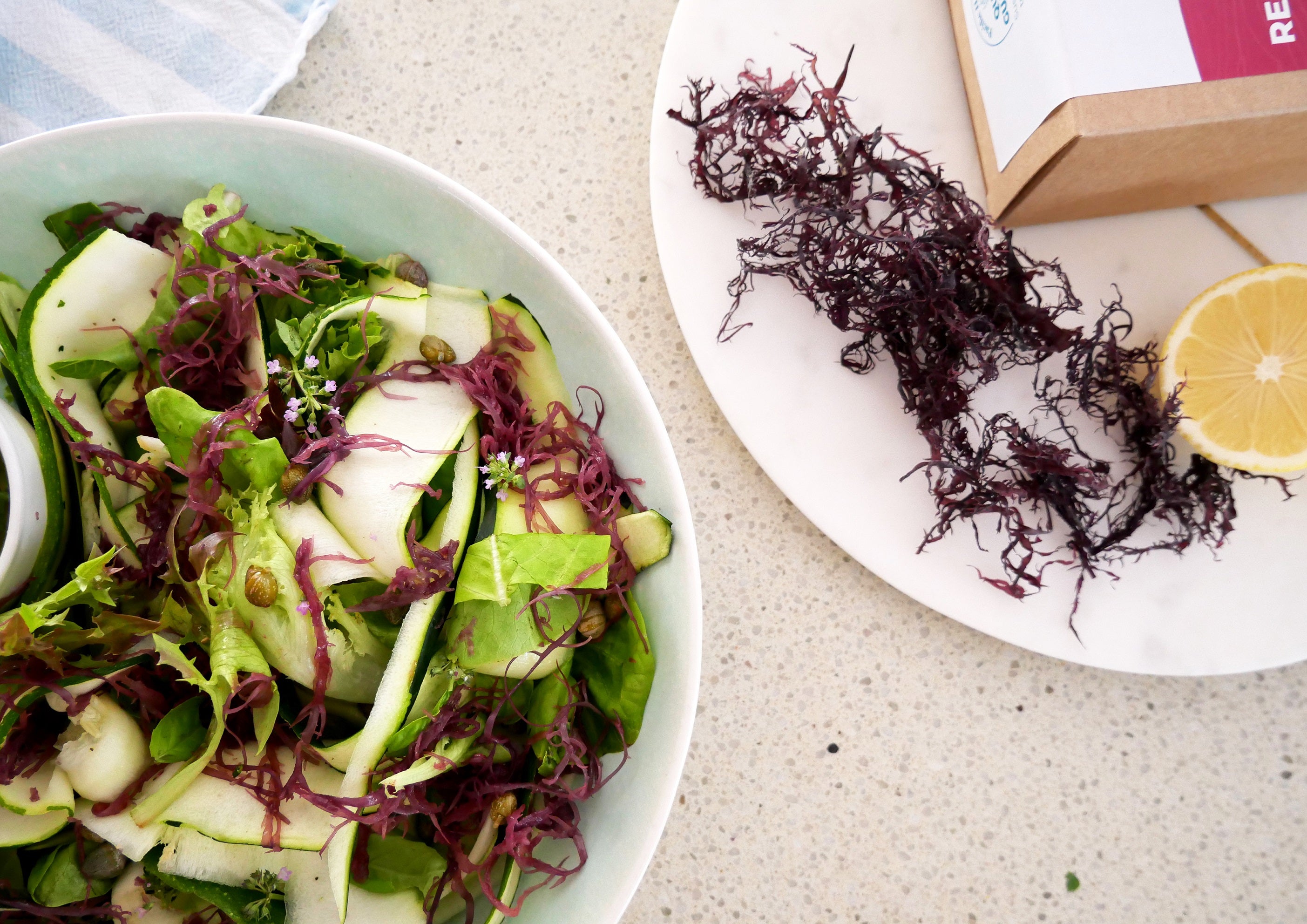Discover the key facts about iodine and seaweeds – why iodine is essential, why we believe adding seaweed to your diet offers the best natural, bioavailable source of iodine, how to get started and a word of caution.
What Is Iodine and Where Does It Naturally Occur?
Iodine is an essential element which means that we must get it from our diet as it cannot be synthesised by the human body.
Iodine is a relatively rare element of the earth (ranking 62nd in the abundance of all the aspects of the planet) and is primarily found in seawater in small quantities and sold rocks (usually near the ocean), as well as in seaweeds. Seaweed is hailed as the most abundant source of iodine because seaweed can concentrate large amounts of iodine from ocean water.
Why Is Iodine Essential?
Iodine is found in all our cells, concentrated in the glandular system. It is not only necessary for the production of thyroid hormone (thyroxine, which controls the way specific cells work), it’s also responsible for all the other hormones in the body, so it can impact immune system functioning, the growth of bones, nerves and how proteins and carbohydrates are used in our bodies. Iodine contains potent antibacterial, antiparasitic, antiviral and anticancer properties. It is considered essential for average growth and for the development of the brain and nervous system, the 5 senses, alertness and coordination. Iodine is also essential before birth and in babies and young children.
How much Iodine do I need every day?
Recommendations for daily intake of iodine vary significantly by country, but we use these guidelines, published by the Australian Ministry of Health, to influence the information we put on our packaging around serving suggestions and at what level we place iodine warnings on packaging. Everyone is unique, so it’s best to consult a medical professional about your health situation before embarking on any significant dietary changes.
Why is seaweed the best natural source of iodine?
We believe in getting what we need from whole foods rather than chemically produced supplements. Iodine and seaweeds are often synonymous in conversations to the point where people think all seaweed offers is iodine! Seaweed is without doubt the best natural source of iodine, especially Kombu, Kelp, Wakame, Nori. Seaweed has a unique ability to absorb concentrated amounts of iodine from the ocean. The concentration of iodine varies by seaweed species, as well as when it was harvested and how it has dried. In fact, one serving of a seaweed-like Kelp can contain over 600% of recommended daily intake of iodine, and one of our seaweed blends may have as little as 10% iodine. Do investigate the iodine level of each seaweed you may be interested in, specifically if you have thyroid concerns!
Seaweed also contains an amino acid called tyrosine, which is used alongside iodine to make two essential hormones that help the thyroid gland do its job correctly. Seaweeds and iodine go hand in hand, and if you want to increase your iodine intake, seaweed is a great place to start!
Add a little seaweed every day to boost your iodine level naturally.
The easiest way to boost natural iodine is to replace table salt with kelp salt. Read our popular blog articles for more ideas:
Thyroid Sensitivities – A Word of Caution with Seaweeds
An iodine deficiency can develop in people who avoid all dairy products, seafood and processed food. The Australian Thyroid Foundation claims that more than 50% of children and pregnant or breastfeeding women living in Australia are iodine deficient and are at risk of developing thyroid disease.
The functional state of the thyroid is lowered if iodine levels are low in the body. This deficiency can also induce goitre and cretinism in such individuals. These days, most Western countries do not have iodine deficiencies as a health concern in a significant way, and such defects are rare. Still, severe iodine deficiency can result in mental weakness and deafness.
Without sufficient iodine to make hormones, you may start to notice symptoms such as fatigue, weight gain (or loss), inability to lose weight, dry skin, brittle nails, and hair loss, to name a few. This may indicate a condition or disease known as hyperthyroidism – a visit to your doctor and a blood test will be the first step to give some clues as to what is happening in your body. In this condition, the body’s metabolic rate runs too fast, and metabolism is rapid compared to the average rate. This situation in the body may be comparable to an overheated engine in an engine. In this situation, we suggest you do not eat seaweed until you have consulted a healthcare professional for tailored medical advice.
Conversely, the secretion of too little of the thyroid hormone will lead to the opposite – hypothyroidism – characterised by the sluggish performance of metabolism in the body—the appearance of the symptoms in both of these different but related conditions is sometimes rapid and sometimes gradual. The symptoms may be mistaken for signs signalling long-term mild depression. In this instance, it may be recommended that you increase your consumption of seaweed to ensure you can access a more significant amount of bioavailable iodine.
An Interesting Case Study – Japan, a Country with high iodine intake, low breast cancer and goitre rates
It’s estimated that mainland Japanese ingest approximately 13.8ug of iodine today, significantly higher than Australasian suggested RDIs (recommended daily intakes). They receive much of their iodine from the seaweeds, which are central to their daily diets and have concentrated, bioavailable levels of iodine. They also have remarkably lower levels of breast, endometrial and ovarian cancers. As the Japanese have embraced western diets in recent years, their incidence of these diseases has increased significantly.
Disclaimer: This material is provided for educational purposes only and is not intended as a substitute for professional medical advice, diagnosis, or treatment. This information may not include the very latest research. We encourage you to do your own research and discuss your findings with a qualified health practitioner who can help you validate the outcomes in the context of your specific & individual health situation.
